
The Panasonic S1 is stirring up the professional full-frame mirrorless camera market. With its excellent image quality, powerful video capabilities, and innovative IBIS (In-Body Image Stabilization), this camera demonstrates outstanding performance in both photo and video. In this review, we’ll examine the S1’s key features, pros and cons, and compare it with competing products to determine if it’s the right fit for your creative endeavors.
📊 Panasonic S1 Detailed Specifications
| Feature | Specification |
|---|---|
| Sensor Type | 35mm Full-frame CMOS |
| Effective Pixels | 24.2 Megapixels |
| Image Processing Engine | Venus Engine |
| Lens Mount | L-Mount |
| ISO Sensitivity | Auto: 100-51200, Extended: 50-204800 |
| Shutter Speed | Mechanical: 1/8000 sec - 60 sec, Electronic: 1/16000 sec - 60 sec |
| Continuous Shooting | Up to 9fps (AF-S), 6fps (AF-C) |
| AF System | 225-area DFD Contrast AF |
| AF Sensitivity Range | -6EV to 18EV |
| Image Stabilization | 5-axis In-Body Image Stabilization (IBIS), 6.0 stops correction |
| Viewfinder | 5,760K dot OLED EVF, 0.78x magnification, 120fps refresh rate |
| Rear Monitor | 3.2-inch 2,100K dot triaxial tilt touch LCD |
| Video Resolution | 4K (3840x2160) 60p/30p/24p |
| FHD (1920x1080) 180fps | |
| Video Format | MP4: H.264/MPEG-4 AVC, H.265/HEVC |
| MOV: H.264/MPEG-4 AVC, H.265/HEVC | |
| Audio | Built-in stereo microphone, external microphone input supported, headphone output |
| Storage Media | Dual slot: XQD + SD/SDHC/SDXC (UHS-II supported) |
| Wireless Connection | Wi-Fi 5GHz/2.4GHz, Bluetooth 4.2 |
| Terminals | USB 3.1 Gen1 Type-C, HDMI Type-A, Remote control, Flash sync, XLR microphone (optional) |
| Battery | DMW-BLJ31 Lithium-ion Battery |
| Battery Life | Approx. 380 shots (when using rear monitor, CIPA standard) |
| Dimensions (W x H x D) | 148.9 x 110.0 x 96.7 mm |
| Weight | Approx. 1,021g (including battery and memory card) |
| Dust/Splash Resistant | Supported |
| Operating Temperature | -10℃ to 40℃ |
🖼️ Image Quality: Full-Frame at its Best
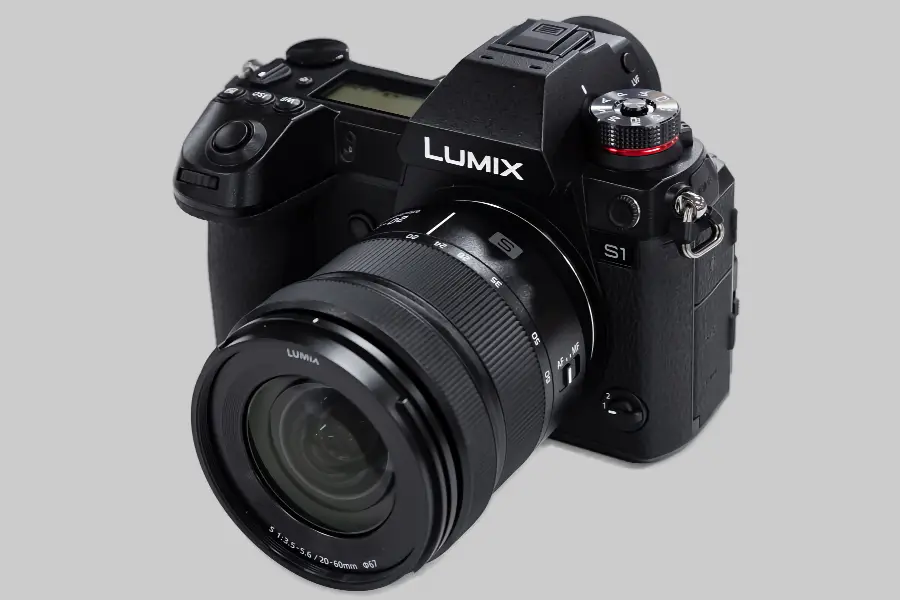
The Panasonic S1 features a 24.2MP full-frame sensor, delivering excellent image quality.
Great Resolution and Detail

- 24.2MP Sensor: Provides sufficient resolution for most shooting situations
- Fine Details: Capable of rendering rich colors and intricate textures
- Noise Control: Excellent noise control performance even at high ISO sensitivities
Excellent Dynamic Range
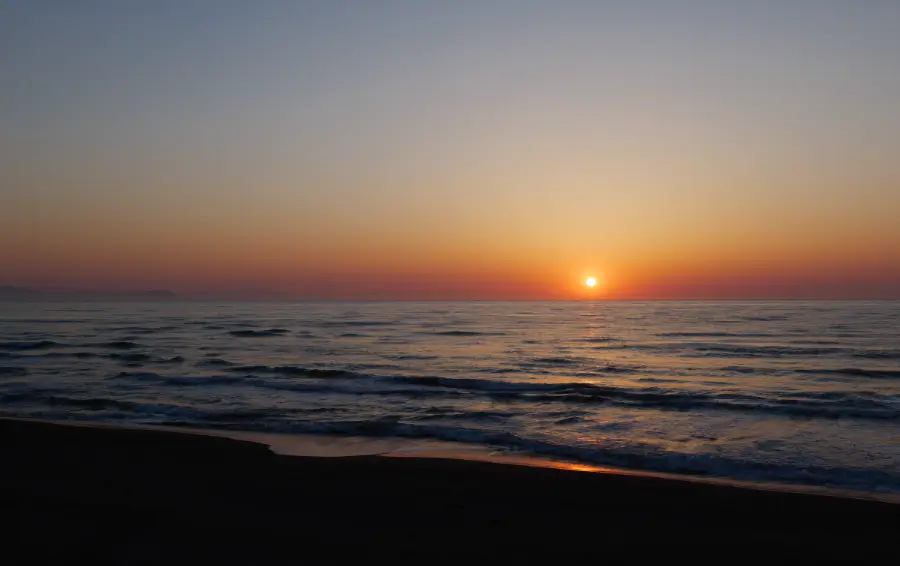
- Full-Frame Advantage: Wide dynamic range preserves highlight and shadow details
- HDR Mode: Capable of capturing even wider dynamic range
Low Light Performance
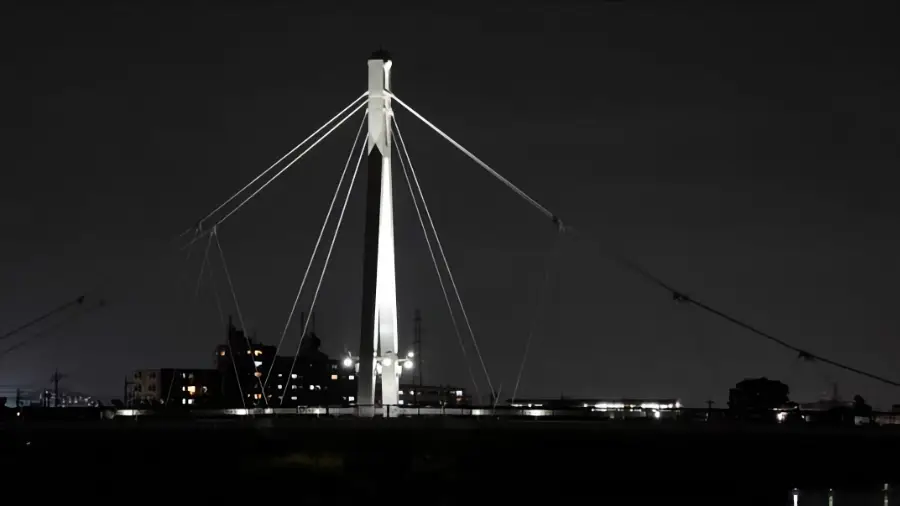
- High ISO Sensitivity: Base ISO 100-51,200, expandable to ISO 204,800
- Clean High ISO Images: Usable image quality even at ISO 12,800
🎥 Video Performance: Professional-Grade Video Production Tool

The S1 offers excellent video capabilities, making it an ideal choice for hybrid shooters.
High-Quality 4K Recording
- 4K 60p 10-bit 4:2:0: Supported for internal recording
- 4K 30p 10-bit 4:2:2: Supported for external output
- 6K Photo: Ability to extract 18MP still images
Various Video Features
- V-Log (Optional): Wide dynamic range and flexible color grading
- HLG (Hybrid Log Gamma): Supports HDR workflow
- Slow Motion: Supports high-speed FHD 180fps recording
Tools for Professionals
- Waveform Monitor: Accurate exposure check
- Vector Scope: Color balance check
- XLR Microphone Adapter (Optional): Supports professional-grade audio recording
🔍 Autofocus: Pros and Cons of the DFD System

The Panasonic S1 adopts a contrast-detection AF system using its proprietary DFD (Depth From Defocus) technology.
Features of the DFD System
- Fast Focus Speed: Quick focus acquisition in 0.08 seconds
- 225 AF Points: Wide area coverage
- AI Technology Utilization: Improved subject recognition and tracking performance
Still Photo AF Performance
- Single AF: Very fast and accurate focusing
- Eye Detection AF: Useful for portrait photography
- Low Light AF: Operational even at -6EV
Limitations of Video AF
- Continuous AF: May be somewhat unstable compared to phase-detection AF systems
- Pumping Phenomenon: Occasional focus pumping may occur during video recording
📸 Shooting Experience: Designed for Professionals
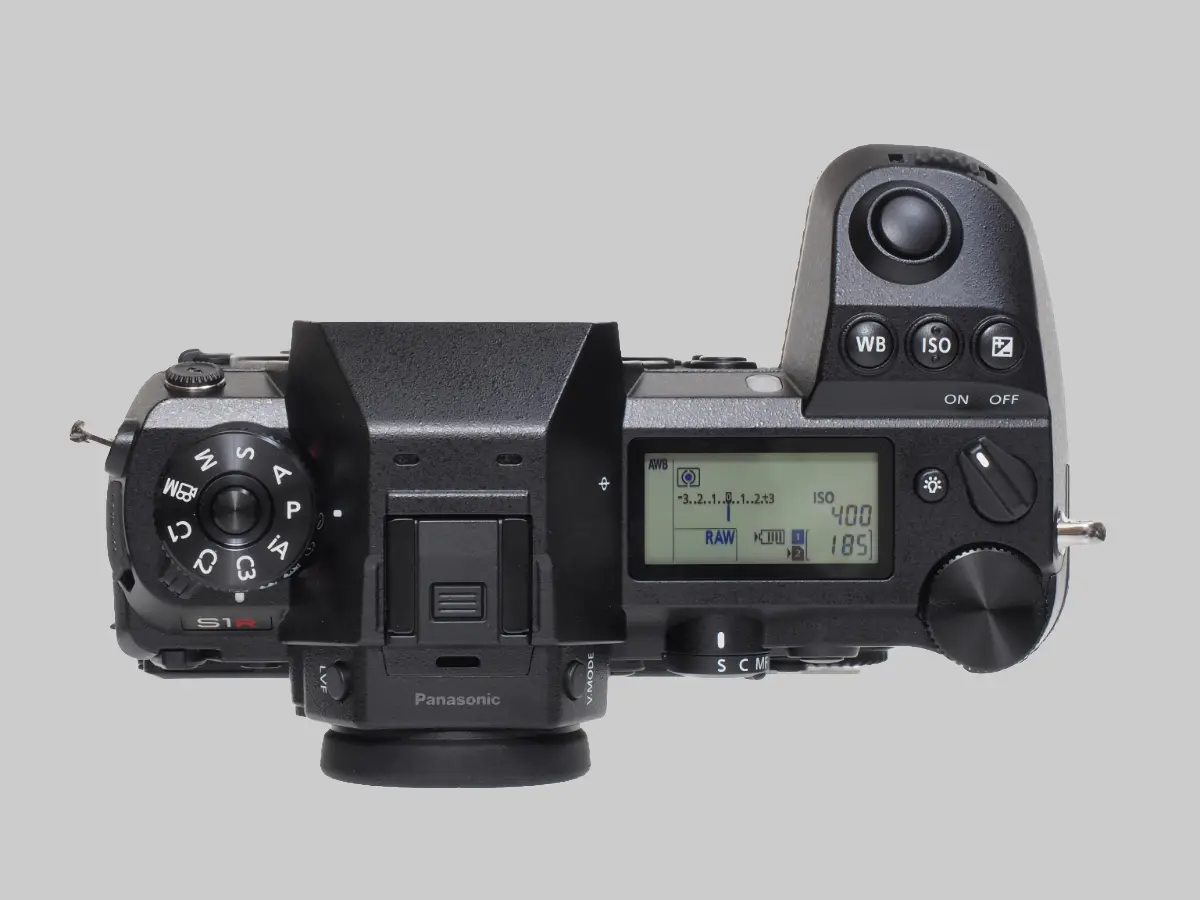
The S1 offers various features that meet the requirements of professional photographers and videographers.
Ergonomic Design
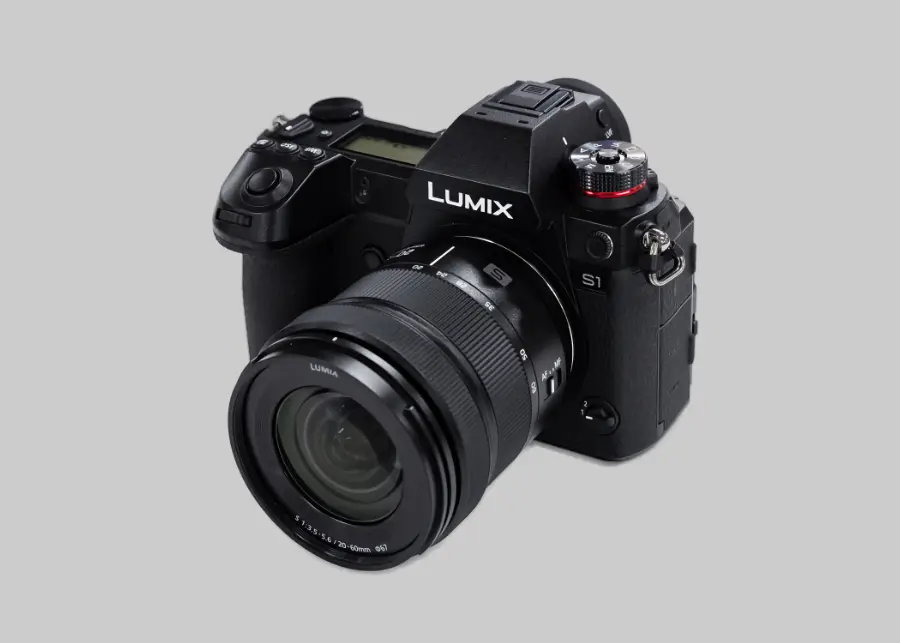
- Robust Grip: Stable handling
- Weather Resistance: Dust and moisture resistant design for use in harsh environments
- Dual Card Slots: Flexible storage options with XQD and SD UHS-II support
High-Quality EVF and LCD
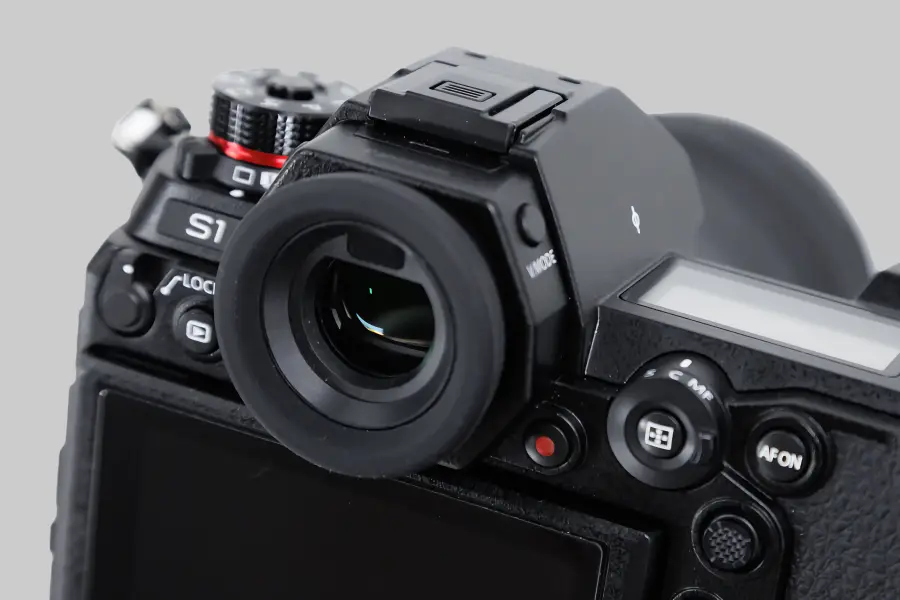
- 5,760K dot OLED EVF: Large viewfinder with 0.78x magnification
- 3.2-inch Tilt LCD: Allows shooting from various angles
Customizable Controls
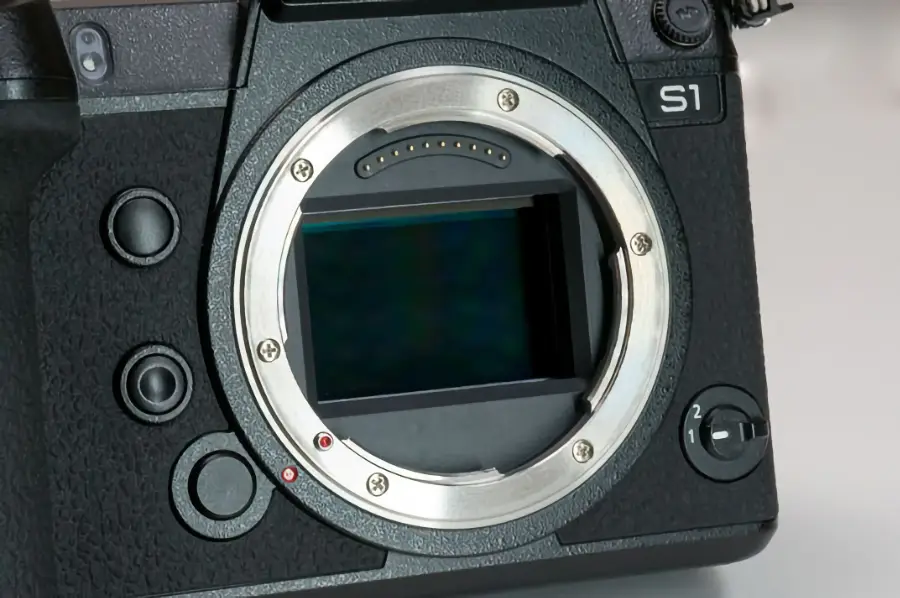
- Multiple Function Buttons: Allows personalized settings
- Intuitive Menu System: Supports quick setting changes
🔋 Battery Life and Connectivity: Supporting Long-Duration Shooting
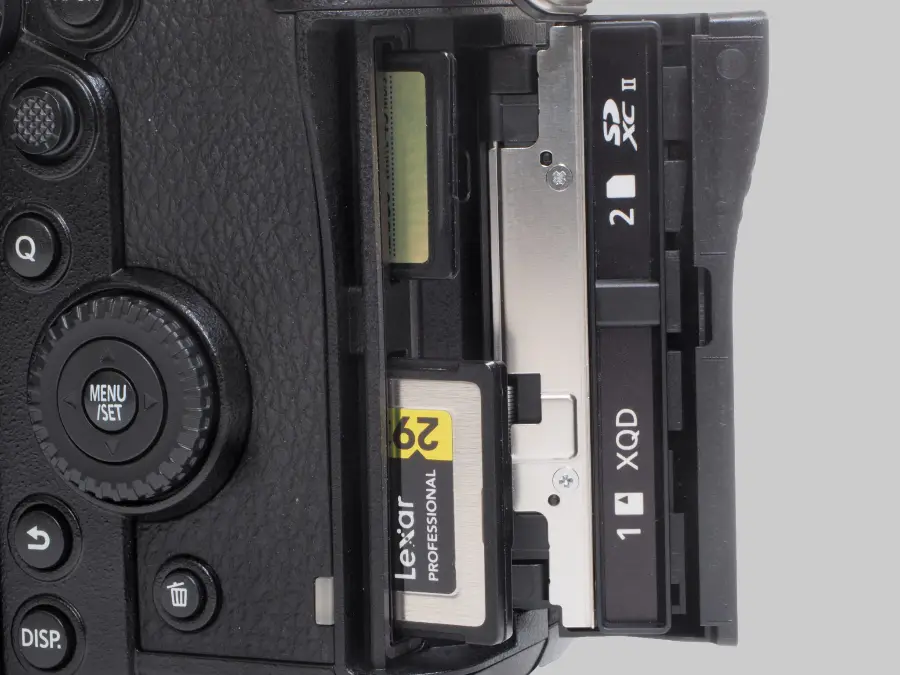
The S1 offers long battery life and various connection options.
Excellent Battery Performance
- DMW-BLJ31 Battery: Capable of shooting approximately 380 shots (CIPA standard)
- USB-C Charging: Allows use of external power banks
Various Connection Options
- USB 3.1 Gen1 Type-C: Fast data transfer
- HDMI Type-A: Supports external recorder connection
- Wi-Fi and Bluetooth: Smartphone connection and remote control
🔄 Comparison with Competing Products
To better understand the position of the Panasonic S1, let’s compare it with major competing products.
1. Sony A7 III

- Pros:
- Excellent autofocus system (693-point phase-detection AF)
- Lighter weight and more compact size
- Longer battery life (approx. 710 shots)
- Cons:
- 4K video features are more limited compared to the S1
- Lower EVF resolution (2,359K dots)
2. Nikon Z6

- Pros:
- Excellent ergonomic design
- Great image quality and color reproduction
- Excellent optical performance of the Z mount system
- Cons:
- Single XQD/CFexpress card slot
- More limited 4K video options compared to the S1
- Slightly shorter battery life
3. Canon EOS R

- Pros:
- Excellent video AF performance with Dual Pixel AF
- Intuitive touch interface
- Excellent optical performance of RF lens lineup
- Cons:
- Severe crop in 4K video
- Lack of IBIS (relies on lens-based IS)
- More limited dual card slot options compared to S1
4. Sony A7R IV

- Pros:
- High-resolution 61MP sensor
- Excellent AF performance and tracking ability
- Superior dynamic range
- Cons:
- More expensive than the S1
- Increased processing time due to large file sizes
- 4K video options not as diverse as the S1
5. Fujifilm X-T4

- Pros:
- Excellent film simulation modes
- Fast continuous shooting (up to 15fps)
- Compact and lightweight design
- Cons:
- Limited low-light performance due to APS-C sensor
- Fewer lens choices compared to the S1
- Shallower depth of field compared to full-frame
6. Canon EOS R6

- Pros:
- Excellent AF performance including animal eye AF
- Superior IBIS (up to 8 stops)
- 12fps (mechanical), 20fps (electronic) continuous shooting
- Cons:
- Lower resolution than S1 (20MP)
- Potential overheating issues during 4K recording
- Relatively shorter battery life
7. Olympus OM-D E-M1X
- Pros:
- Excellent IBIS performance (up to 7.5 stops)
- High continuous shooting speed (up to 60fps)
- Robust dust/waterproof design
- Cons:
- Limited low-light performance due to Micro Four Thirds sensor
- Larger size and weight compared to S1
- Limited shallow depth of field compared to full-frame
🎞️ Real-World Usage Experience
After extended use of the S1, its strengths and weaknesses have become even more apparent.
Still Photo Shooting
- Image Quality: Excellent quality showcasing the advantages of the full-frame sensor
- Dynamic Range: High editing flexibility of RAW files
- High Sensitivity Performance: Usable noise control up to ISO 12,800
Video Shooting
- 4K Quality: Sharp and detailed video quality
- V-Log (Optional): Enables professional color grading
- IBIS Performance: Stable footage even in handheld shooting
Autofocus System
- Still Photos: Fast and accurate focusing in most situations
- Video AF: Sometimes shows instability, room for improvement
Ergonomics and Operation
- Grip Feel: Comfortable grip even during extended use
- Button Layout: Intuitive and customizable controls
- Menu System: Can be complex at first, but efficient once familiar
💡 Who Is This Camera Suitable For?
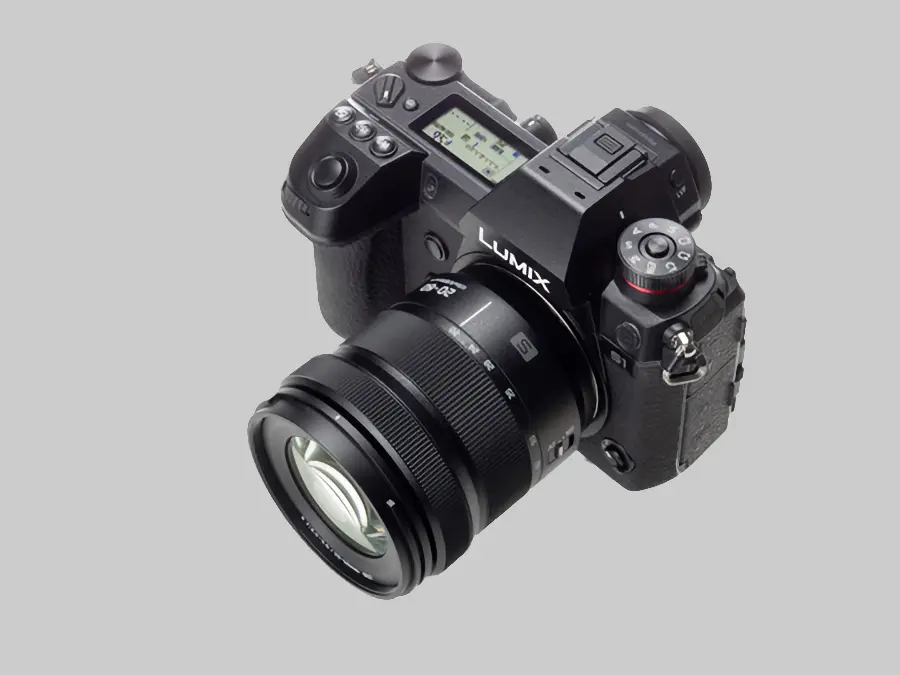
The Panasonic S1 is particularly suitable for:
Professional Photographers
- Users who need high image quality and robust durability
- Those seeking a versatile camera that can handle various shooting situations
Videographers
- Professionals who need high-quality 4K video
- Users who want to utilize V-Log and various video features
Hybrid Shooters
- Creators who want to shoot both photos and videos at a high level
- Those looking for an all-rounder capable of producing various media with one camera
Full-frame High-quality Camera Beginners
- Panasonic users considering an upgrade from Micro Four Thirds to full-frame
- Passionate amateurs who want advanced features and excellent image quality
🔧 Areas Needing Improvement
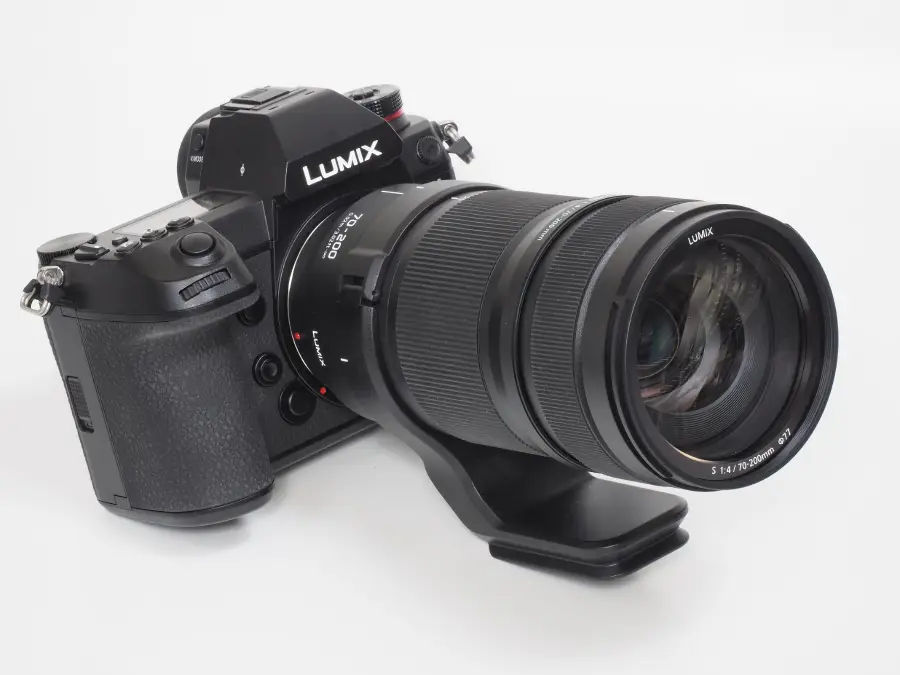
Despite the S1’s excellent performance, there are a few areas that need improvement:
Autofocus System
- Need for more stable performance in continuous AF, especially during video shooting
- Tracking performance needs improvement compared to competitors’ phase-detection AF systems
Size and Weight
- Relatively heavy and large body despite being a full-frame mirrorless camera
- Potential for increased fatigue during long handheld shooting sessions
Battery Life
- Somewhat shorter battery life compared to competing products
- Need for spare batteries during long shooting sessions
Lens Lineup
- Still limited lens selection for the L-mount system
- Many high-priced lenses, leading to high costs for system building
🏁 Conclusion: An Innovative but Not Perfect Camera
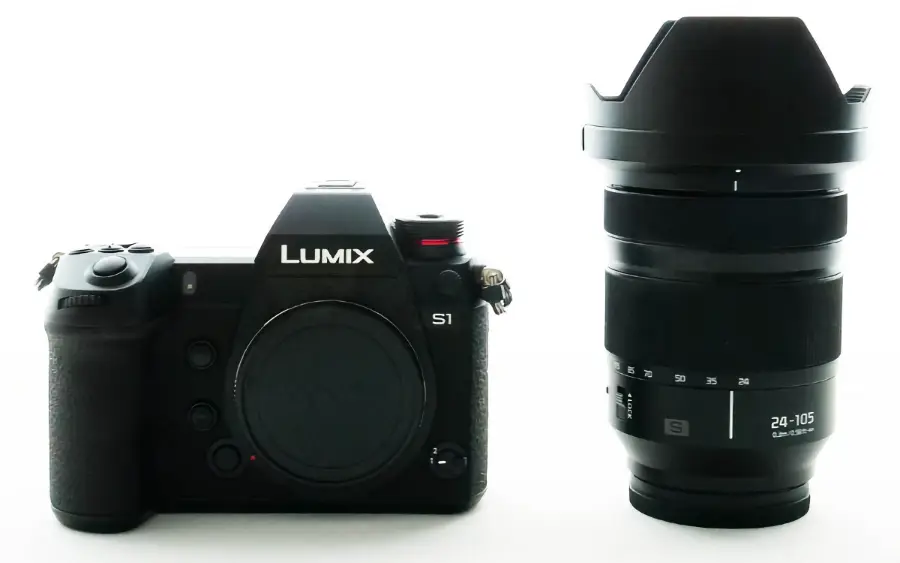
The Panasonic S1 is a camera with many advantages including excellent image quality, powerful video features, and innovative IBIS. It provides a new option in the full-frame mirrorless market and can be an attractive choice, especially for users doing hybrid shooting.
However, the limitations of the DFD autofocus system, the relatively heavy body, and the still-expanding L-mount lens ecosystem may be drawbacks for some users.
In conclusion, the Panasonic S1 can be recommended for:
- Creators who value high-quality photos and videos equally
- Professionals who want a robust and reliable camera body
- Users familiar with Panasonic’s color science and features
- Those ready to invest in the potential of the L-mount system
On the other hand, other options might be considered in the following cases:
- If looking for a lightweight travel camera
- For sports or wildlife photography where fast continuous shooting and tracking AF are crucial
- When trying to build a full-frame system on a limited budget
The Panasonic S1 has emerged as a strong competitor in the full-frame mirrorless market. While there are some areas for improvement, it is overall a very capable and versatile camera. It’s important to make a decision considering your specific needs and shooting style.
You can find more detailed information on the official Panasonic S1 website.






